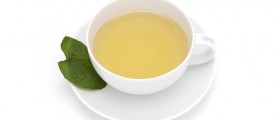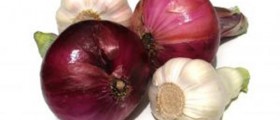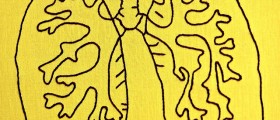
How to Recognize Dry Cough
Dry cough is a symptom of many diseases of the respiratory tract. It is basically caused by irritation and inflammation of the throat and lung tissue and may also result from restriction or obstruction of the airways. This form of cough is treated with numerous medications and if it lasts in spite of therapy it may point to the presence of more serious medical conditions.
Dry cough is usually accompanied by ticklish sensation in the throat. There is no phlegm. In some people cough is persistent while others suffer from bouts of coughing. Dry cough exhausts patients and may even interfere in sleeping since it tends to increase over night.
Causes of Dry Cough
Dry cough typically occurs during common cold and other upper respiratory tract infections. Pharyngitis and laryngitis are also responsible for dry cough. Asthma is another medical condition which features with dry cough. Sinus infection leads to postnasal drip. The mucus irritates the throat and may cause cough. Acute bronchitis, pneumonia as well as pleurisy in initial stages lead to dry cough. Dry cough is also a characteristic of chronic obstructive pulmonary disease (COPD), to be more precise chronic bronchitis and emphysema. Other chronic pulmonary conditions such as pulmonary fibrosis, sarcoidosis, and pneumoconiosis are commonly accompanied by dry cough. Irritation caused by certain chemicals, chronic exposure to cigarette smoke, heavy smoking or even entrance of the stomach acid into the throat may consequently result in dry cough. And finally, persistent and prolonged dry cough may also point to the presence of lung carcinoma.
Dry Cough Treatment
Dry cough can be adequately treated once the underlying cause has been identified. Alleviation of symptoms can be achieved by certain home remedies and numerous medication prescribed by the doctor.
The doctor decides which medication or a combination of dry cough remedies are the best option for dry cough and the underlying condition. Once the primary disease has been brought under control the patient will also stop coughing. In the meantime one may try certain remedies which can alleviate dry cough. Still, they are not supposed to be used without consultation with the doctor.
A steaming glass of milk and a table spoon of honey can sooth the inflamed throat particularly if taken before going to bed. Furthermore, the steam from a warm shower moisturizes the inflamed throat passages and reduces the intensity of cough. Throat lozenges are also good even though they provide only with temporary alleviation of symptoms.
There are several more remedies for dry cough. They include a mixture of a glass of water and 3 to 4 tablespoon of apple cider vinegar, black tea with honey and lemon, milk mixed with three cloves of minced garlic or a glass of milk mixed with 2 tablespoon of freshly squeezed turmeric.
















Your thoughts on this
Loading...